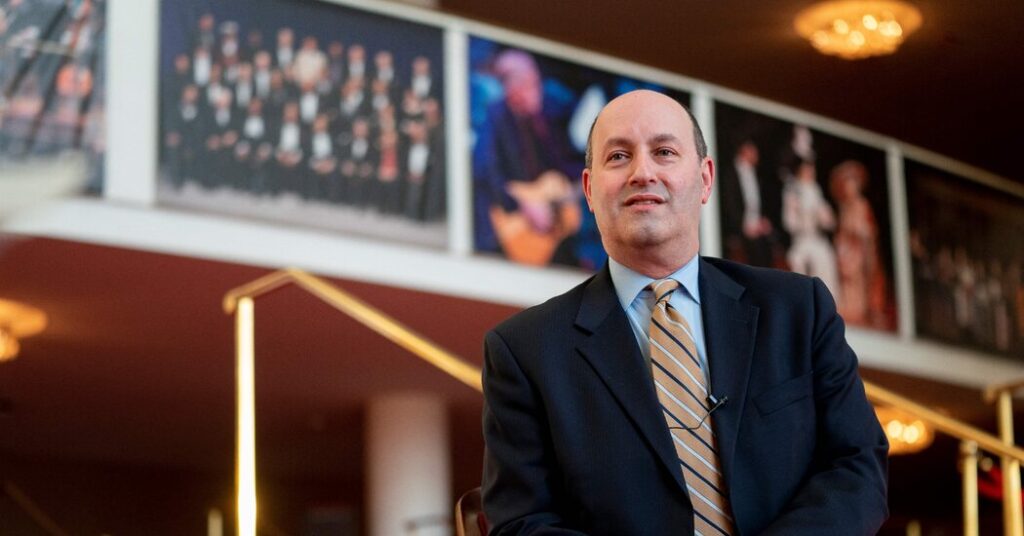Gary Ginstling, a veteran orchestra manager who briefly led the New York Philharmonic before abruptly resigning last year, will become the next chief executive of the Houston Symphony, the ensemble announced on Friday.
He will take the helm of the orchestra, which was founded in 1913, as it works to elevate its artistic profile and increase fund-raising. The Houston Symphony is close to completing a $60 million renovation of its home, Jones Hall, and it has been working to attract new audiences.
Ginstling, who starts next month, said he was drawn to the dynamism of Houston.
“The word is potential — potential to be a cultural leader in Houston, to be a world-class orchestra and to enter into a new era with this amazing group of people,” he said. “You really get the sense that everything is possible.”
Ginstling, 58, has held senior posts at a variety of ensembles, including the National Symphony Orchestra in Washington, the Indianapolis Symphony and the Cleveland Orchestra.
But he had a rocky time as president and chief executive of the New York Philharmonic. He left in July, after just a year on the job, amid friction with musicians, staff, board members and the star maestro Gustavo Dudamel, the Philharmonic’s soon-to-be music and artistic director.
In an interview this week, Ginstling declined to comment on his departure, saying, “I’m going to leave the past in the past.”
Barbara J. Burger, president of the Houston Symphony’s board, said that the search committee had examined Ginstling’s time at the Philharmonic and had spoken with colleagues in New York. “For sure it’s going to concern you when someone’s had a short tenure,” she said.
But the committee was satisfied, she said, by Ginstling’s acknowledgment that he was not a good fit for the Philharmonic, and that the Philharmonic was not a good fit for him.
“We thought it was a credible story,” said Burger, a former Chevron executive. “Sometimes you put people in an environment where they face challenges, and it doesn’t mean they’re bad people.”
She added: “If he had no track record elsewhere, then it would have been a different story.”
Ginstling said he was ready for a new challenge.
“The most important thing to me is to find an institution where people are committed and passionate,” he said. “Houston just feels like a community where I would fit in.”
The New York Philharmonic recently appointed Matías Tarnopolsky, who previously led the Philadelphia Orchestra, to succeed Ginstling.
The Houston Symphony, with 90 musicians, 74 staff members and a budget of about $41 million, has been energized recently by the Jones Hall renovation project. The most ambitious phase of the project, which included improvements to acoustics and lighting, was completed last year.
Fund-raising has shown signs of promise: Donations rose to $22 million last year, up from about $13 million in 2019. The endowment has increased, reaching about $100 million, from about $76 million in 2019.
But the orchestra faces challenges. Attendance at concerts is still below prepandemic levels: It was at 69 percent of capacity last year, compared with 72 percent in 2019, though the orchestra says it expected attendance to return to prepandemic levels this year. Subscriptions have also declined sharply in recent years.
When he takes the reins next month, Ginstling will be expected to help expand the orchestra’s donor base and forge closer ties to the community, Burger said. He will also help decide whether to retain the Houston Symphony’s music director, Juraj Valcuha, when his contract expires in 2026.
“We have ambitions to be a top orchestra,” Burger said. “Gary understands the job. He has the mind-set and the heart for the job.”
Ginstling succeeds John Mangum, who left Houston last fall to serve as general director of Lyric Opera of Chicago.


